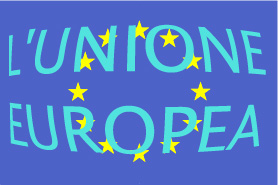Rimani aggiornato:
Iscriviti alla newsletter
Modulo Jean Monnet
The European Integration Process and the transatlantic relationship
History of the Construction of Europe.
Giuliana Laschi e Alessandra Bitumi
- Course contents
- Readings/Bibliography
- Teaching methods
- Assessment methods
- Teaching tools
- Language of instruction
Course contents
This course intends to offer the students the opportunity to develop a critical knowledge of the European Community's history. For this reason, attention will be paid to the principal moments of the political, economic and diplomatic process leading to the formation of the EU. The study will be based on three levels of analysis: the international, the European and the national level. Beginning with some notes on the historiographical debate, following a chronological order, students will be guided to the understanding of the main external and internal elements that have oriented the process of European integration, since World War II.
The course will focus on the key events and core issues of the European integration process through the analysis of specific topics. During the first module (20 lectures), we will analyze the historiographical debate, the turning points of the integration process and the most critical questions. The EC/EU will be investigated in its political, economic and institutional dimension, paying particular attention both to the internal dimension and to its relation with third countries. During the second module (5 lectures), we will develop a particular aspect of the EC/EU external relations, namely transatlantic relations. This final part foresees the support of experts.
The analysis of the Euro-American relationship will be based also upon primary sources distributed by the instructor.
Readings/Bibliography
For the first module:
- G. Mammarella, P. Cacace, Storia e politica dell'Unione Europea (1996-2005), Laterza, 2005.
Students will also be provided with a detailed bibliography for each sector of analysis.
For the second module, students will have to study all documents and material presented by the instructor at the beginning of the course. If they were not available in the library, students could find them in photocopies at the segreteria didattica of the Faculty.
Teaching methods
Frontal lectures will be followed by seminar discussions. During the lectures, the instructor will present the main elements of study and critical analysis. During the second module, there will also be meetings with experts who will offer the students an in-depth analysis of specific issues. Students, on their part, will have to attend the meetings after studying documents and readings proposed by the experts themselves.
Assessment methods
Attending students will have two written texts and a final oral text.
Non-attending students will have a written text and, if they pass it, a final oral text.
In the written text, there will be multiple choice and open answer questions.
Contact the instructor for information about the text.
Each exam will count for 50% of the final grade.
[P]olicy
- [L]
Note legali - [T]ermini
d'uso - [C]ontatti
- [A]ccesskey -
Statistiche (riservate)
Copyright 2002 Punto Europa - Progettista -
mail: info@puntoeuropa.it
PuntoEuropa .it è sviluppato seguendo i più recenti
standard del W3 e nel rispetto dell'accessibilità
[Dettagli
su strategie e validazioni]






